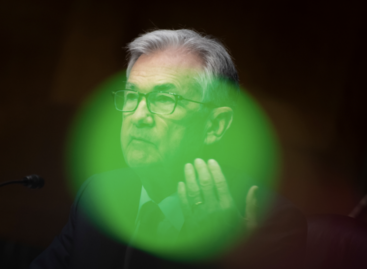GKI: The government’s economic policy leads to the recovery of the future
Last year, the Hungarian economy overcame the most difficult phase of the crisis caused by the domestic economy caused by the division before the 2022 elections, and the global economic consequences caused by the Russian aggression against Ukraine. However, the government’s ideas hardly set the economy on a path of sustainable growth, which lacks solid results and good economic policy.
The recession is over, inflation is in the single digits
One of the most important results is that the external balance, which showed a dramatic deficit in 2022 (the current account deficit was 13.9 billion euros in 2022), turned positive already in the second quarter of 2023, and then the asset for the first ten months was 0.7 billion euros became. This is a very big result even if we know that the exchange rates played a big role in the changes, and the price of the improvement was the recession.
The recession also ended in the second-third quarter of 2023. However, the annual Hungarian economic downturn was probably the second deepest in the EU. It was due to the approximately 60% expansion of agricultural GDP that the decline in the Hungarian economy could only be around 0.5% in 2023. With this, agriculture more than compensated for its nearly 25% decrease measured in 2022. If the agricultural GDP had only compensated for the decline experienced in 2022, i.e. had only reached the level of 2021, the decline of the Hungarian economy last year would be much deeper than the actual one, around 2%.
It is positive that inflation became single digits in October. Last year’s annual average price increase of 17.6% far exceeded the 15% planned by the government and was the highest in the EU. The 5.5% price increase at the end of the year is surprisingly low, and is only the sixth highest in the EU. (It is true that the method of energy price calculation, which plays a significant role in this, is controversial, and Eurostat’s decision has not yet been made.)
By the end of the year, the benchmark interest rate was also significantly reduced, from 18% to 10.75%, although the government does not consider this satisfactory due to the real interest rate in December of around 5%. After the 7.6% decrease in January 2023, the real wage already increased by 5.6% in November, and in December, due to the further decrease in the rate of price increase and the brought forward increase in the minimum wage, it could rise temporarily by more than 10%. However, on an annual average, real earnings may have fallen by 2-2.5%, and real incomes by 3.5-4% due to the high base and spending before the elections.
Related news
GKI is more pessimistic than the government about growth, inflation and public finances
GKI hasn’t changed its 2-2.5% growth forecast for 2024. However,…
Read more >2024 Q2 Investment Outlook: Timing matters
Positive momentum is building. The outlook for 2024 has brightened,…
Read more >K&H: we don’t have much time left to reach the 55 percent reduction
The Hungarian economy still has 6 years to reach the…
Read more >Related news
BH AgrárTrend Index: the outlook for the Hungarian food industry has stabilized
The assessment of the situation of the actors of the…
Read more >GVH: The postponement of certain amendments to the Competition Act is justified
The Economic Competition Authority (GVH) agrees with the postponement of…
Read more >We mostly stock up on sandwich ingredients
Baked goods, cold meats, ham, salami and some kind of…
Read more >








